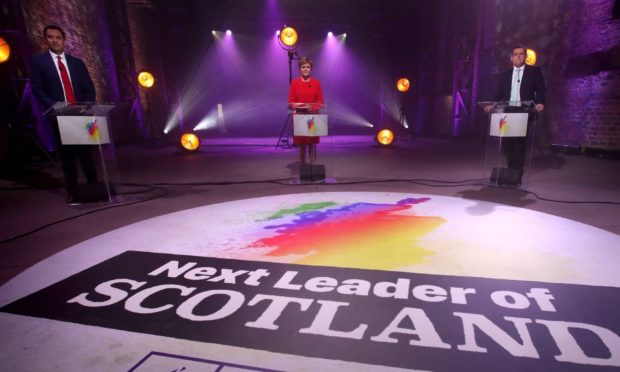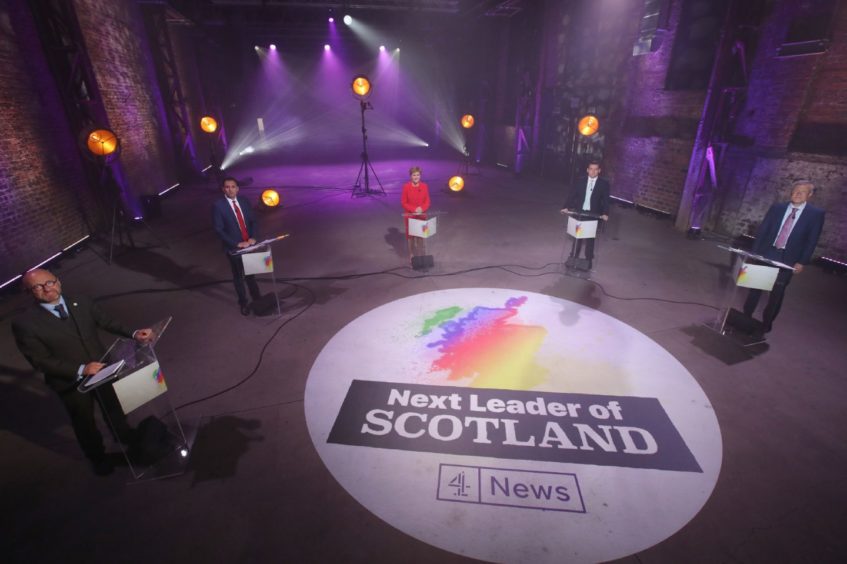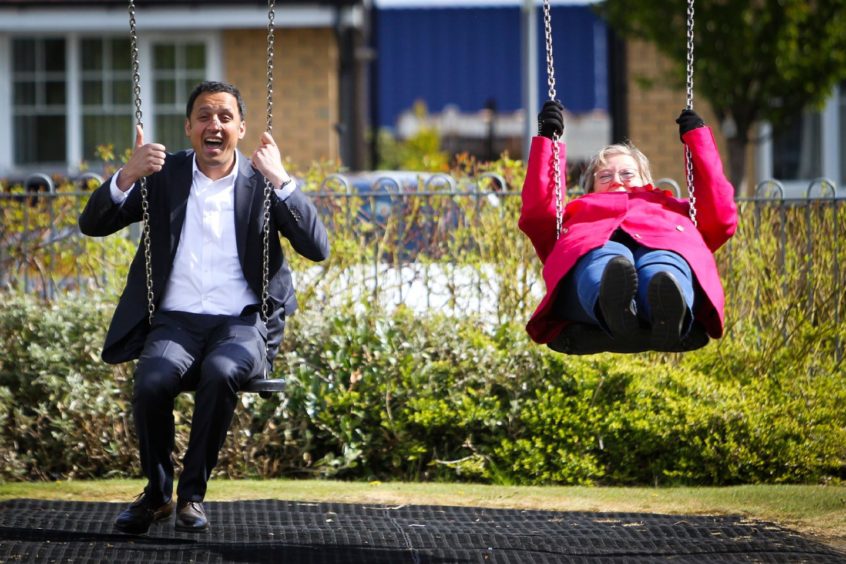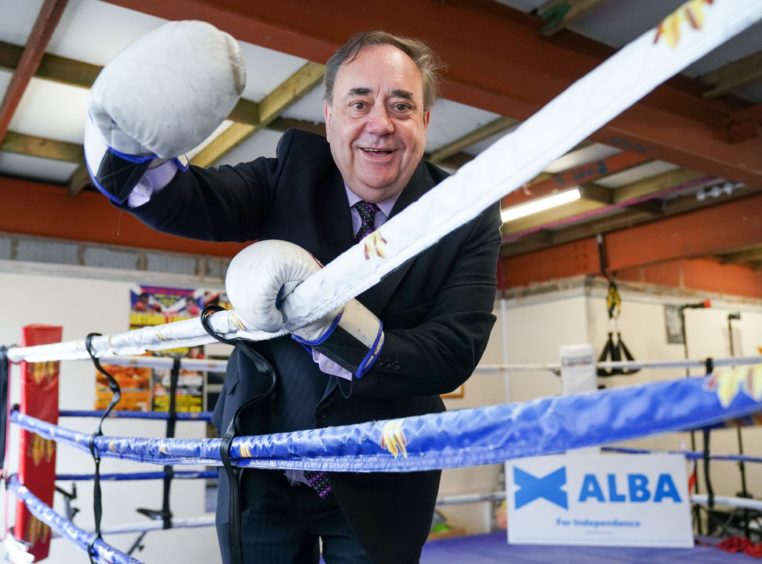The run-up to the Scottish election has shown that democracy needs a crowd. Good politics, like good journalism, relies on hearing unguarded blether. It’s the only way you can tell what really matters.
Lockdown has muffled the sound. No furious indignation. No strident bluff. Apart from the stooges in TV audiences and radio phone-ins, the puppets on Twitter and Facebook, it’s been impossible to gauge the mood of the nation when it can’t be heard.
This has led to a confusing campaign. Note to the future – you need an open society to have a functioning democracy.
The Covid pandemic has made us care less for politics. We’ve gone for 12 months being told what to do, everyone agreeing, opposition muted. After the pandemonium of Brexit, it’s been quite pleasant.
The core measure of politics – what’s affordable – has been suspended. It’s like taking the gun out of a gangster movie. Money is spent regardless. Where’s the argument in that?
There is something good in this. We care about what matters – friends, a job, a functioning NHS and education for our children. Beyond that, everything else is froth. Now that we’ve experienced real crisis, the confected emergencies from political parties seem silly.
This may explain why the polls show a majority for pro-independence parties, but there is no sense Scotland urgently demands change. This is not a land in revolt.
More confusion than consensus
Yet the great ‘emergency’ of the constitution persists. May 7 could see the beginning of the end of the UK if the SNP win a majority. A clear outcome would be desirable, but another five years of confusion more likely.
For fans, Indyref2 appears like the welfare state following the war. A peacetime reward for Covid suffering. For them, celebration will be in order. For the rest, confusion.
Unlike Beveridge’s new society, there no consensus on the change, no details on the page. In fact, we know less than ever before.
The shock of the campaign has been the SNP saying they don’t have an Indy plan, don’t know the cost and no longer hazard a guess about Scotland’s wealth.
Scotland is not desperate for independence, but is comfortable with how things are and lacks a credible alternative
Political parties usually embellish policies during elections. The SNP has dismantled its main one. It’s like Boris disowning the bus before the Brexit vote.
This suggests the SNP canvassers are getting a lot of push back on independence on the doorstep. By stripping it bare, they restrict discussion of detail.
This explains the decision to drop a reference to Indyref2 from the ballot paper. Scotland, and by extension the UK, stands on the brink of ending. What comes next is anybody’s guess.
It encourages the idea that Scotland is not desperate for independence, but is comfortable with how things are and lacks a credible alternative.
That is the thrust of Tony Blair’s argument this week.
It will rile nationalists. However, I think the Yes camp should set aside the righteous indignation.
They may win a clear mandate, but a muddled, confusing outcome is more likely. The SNP will need to look calm in such circumstances, not triumphant.
Numbers game
Some confusion may stem from turnout. It’s never been that impressive for Holyrood elections, and could dip below 50%. If so, the result becomes debatable.
If over half the electorate vote, its most likely there will be a pro-independence majority. That is not the same as 2011’s outright majority for the SNP. If it includes an Alba Party MSP, it will mean two conflicting versions of Indy are represented. Confusion is inevitable.
The heir apparent to the SNP crown, Angus Robertson, should win Edinburgh Central but find himself in a debatable land.
The mood will be firmly ‘national’ in the sense that Scotland is still sure of itself. The once fashionable argument about a lack of confidence doesn’t hold. What’s unclear is what we want from our evolving sense of identity.
It turns out the privately educated child of a billionaire is confident
This uncertainty won’t be helped by the poor performance of Douglas Ross at the helm of the Tories, or the capers of his not corrupt boss in Downing Street. Clear leadership on the union is lacking.
The only group not to be confused is Labour. For once, they have done well. Anas Sarwar has been lucky he didn’t win the leadership earlier, and that expectations for him are so low.
But politics is all about direction of movement, and Labour are looking up. As a pal said: “It turns out the privately educated child of a billionaire is confident”. Still, Sarwar has done well.
Let’s not forget Alex Salmond, looking at his reflection and asking: “Mirror mirror on the wall, who’s the cutest of them all?”
I suspect he’ll not enjoy the answer. The Alba Party promised a gun powder plot. It died on the fuse. By inventing the term “supermajority” they have also confused the mandate for progress.
And yet I hope Salmond is elected. An exhausted SNP leadership of the shameless and the stupid look set to be re-elected into government.
His spiky presence will bring confusion to his enemies, most of whom will be on the government’s side. And that’s good for democracy.



